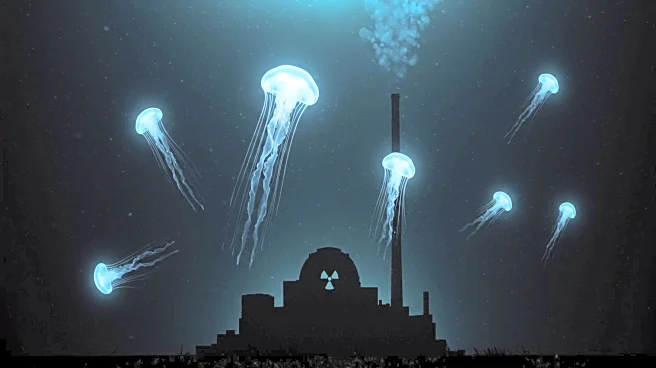What's Happening?
The Gravelines nuclear power station in northern France has temporarily shut down four of its six reactors due to a jellyfish infestation. The jellyfish clogged the pumping stations, which are crucial for cooling the reactors. EDF, the plant operator, confirmed that the jellyfish posed no safety threat to personnel or the environment. The reactors were shut down as a precautionary measure, and EDF has begun reconnecting two reactors to the national grid. The incident highlights the challenges posed by environmental factors in nuclear power generation.
Why It's Important?
This incident underscores the impact of environmental changes on critical infrastructure, such as nuclear power plants. The proliferation of jellyfish, attributed to climate change, poses operational challenges and potential risks to power generation. As nuclear power remains a key component of energy strategies, addressing such environmental disruptions is crucial for maintaining energy security. The event also raises awareness about the broader ecological consequences of climate change, prompting discussions on sustainable practices and infrastructure resilience.
Beyond the Headlines
The jellyfish issue at Gravelines reflects broader ecological shifts, with jellyfish populations increasing due to warming oceans. This trend could lead to more frequent disruptions in marine-dependent industries, including energy and fishing. The incident may prompt further research into mitigating jellyfish impacts and exploring alternative cooling methods for nuclear plants. Additionally, it highlights the interconnectedness of climate change and industrial operations, emphasizing the need for adaptive strategies in response to environmental changes.









